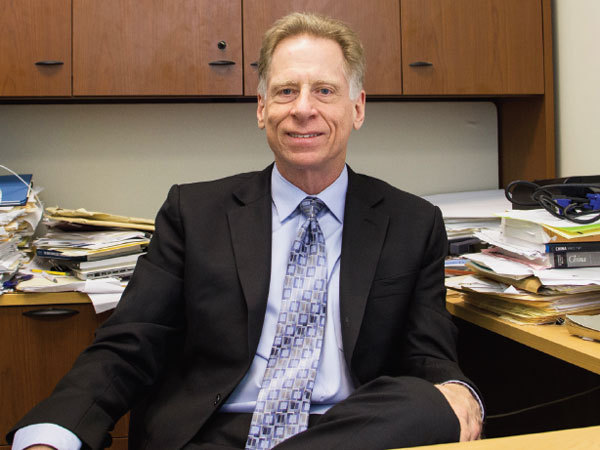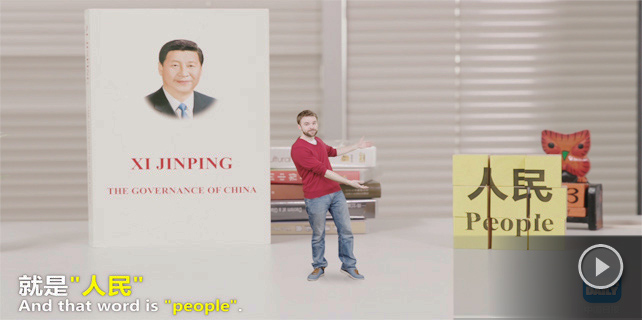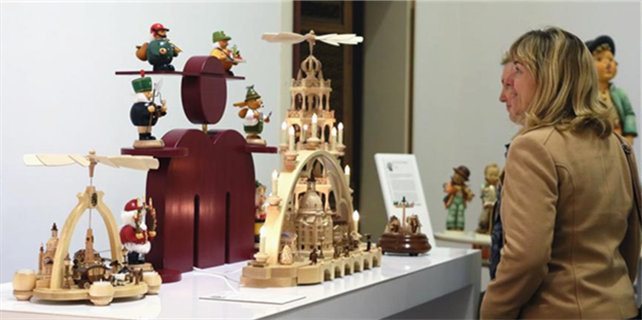Lifelong study of China shaped scholar
|
Roger Hart is director of the Confucius Institute at Texas Southern University. May Zhou / China Daily |
An early fascination with Chinese philosophy and classical literature leads to building bridges between two cultures and peoples
Roger Hart's favorite philosophers are Zhuang Zi and Lao Zi, and the Chinese classic Dream of the Red Chamber remains one of his favorite books.
His strong interest in the two ancient Chinese philosophers led Hart, director of the Confucius Institute and associate professor of history at Texas Southern University, first to Taiwan and then to the Chinese mainland.
He eventually mastered the language to be able to appreciate Tao De Jing and Zhuangzi - the two most influential Chinese books of all time - in their original Chinese.
As a young man, Hart loved philosophy and took his passion seriously.
"The foundation of philosophy is the science of mathematics in the Western tradition, so I went to MIT to study mathematics as an undergraduate and then to Stanford University as a graduate student of mathematics," Hart said.
Having read Zhuangzi in English and being fascinated by it, Hart joined an Asia volunteer program at Stanford and went to Taiwan to teach English for one year in 1983.
"I thought that if I didn't know the language, I would not really know what's going on around me. I couldn't learn much about China depending on a translator," Hart said, of how he started to study Chinese.
A year later, Hart wanted to study Chinese more and took another volunteer assignment at North China University of Technology in Beijing for two years.
"We were sent to smaller universities so that we would stay away from other foreigners to learn more about local culture and to be more helpful to others," explained Hart.
"I thought I was going to help people. When I got there, I realized that Chinese people are doing fine by themselves, I got more help to learn about China than what I offered."
Then Hart studied at Sun Yat-sen University in Guangzhou for a year before going back to Beijing to study Chinese literature at Peking University. "I studied ancient, modern and contemporary Chinese literature," Hart said.
"As I studied more and more Chinese, I became more and more interested in Chinese history, culture and literature. Whatever I studied about China, it was absolutely fascinating. Today my favorite books remain Dao De Jing and Zhuangzi."
When Hart returned to the US five years later, he was well versed in Chinese. He contemplated his favorite Chinese philosophers by reading their original works. Hart read many Chinese classics, and Dream of the Red Chamber became his favorite.
"It is a very captivating and mesmerizing book. I'd forgot where I was after a chapter or two. The portrayal of thoughts and love, the real and unreal, all the logical twists, it's very critical that it makes you think in ways you normally wouldn't. I would put this book along with Zhuangzi, Tao De Jing, and Lu Xun's books as critical works; they make you think differently," Hart said.
It's a great pleasure to be able to appreciate the original works, he said.
"It's a completely different experience to read them in Chinese. A whole lot is lost in translation. If you read Shakespeare in Chinese, I imagine it's very hard to replicate the wordplay and puns in translation."
Hart went to UCLA to pursue a PhD, with a focus on Chinese science history. Afterward, he participated in various academic programs at Harvard, UC Berkeley and the University of Chicago.
He got his first tenure-track job at the University of Texas, and then went to Seoul National University on a fellowship. Hart jokingly calls himself "a migrant scholar".
In those years, Hart focused on research and produced two scholarly books: The Chinese Roots of Linear Algebra and Imagined Civilizations: China, West and Their First Encounter.
While traditional Western academic works view the 17th century Jesuit missions to China as a great encounter between two civilizations, Hart's second book offers a different perspective: the Italian Jesuit Matteo Ricci went to China to serve the Chinese emperor.
Hart said his China study experience gave him a critical view of all things. When it comes to American ideologies and ideas, Hart thinks that he holds more objective views compared with some of his fellow academics.
"Many of my colleagues tend to think that the US is exceptional. A lot of books were written in the way to explain the alleged uniqueness of the alleged West. All these other countries were alleged to lack something in science," Hart said.
"Joseph Leedham [an esteemed British sinologist] tried to show China had science, but his argument was that China had early science but not modern science. People don't realize that China is now also a center of science."
To Hart, many American scholars have predicted the fall of China for the past 60 years and they have been wrong. "My work in China prepared me to realize that these views are not necessarily scientific and accurate; it's more like cheerleading for the US."
Hart took his current position at Texas Southern in Houston in 2013, when he came back from Seoul. "I spent 15 years in China-related research and lost a lot of my Chinese ability and lost track of how fast China is changing. This job gives me a chance to catch up with contemporary China," Hart said.
Hart finds his current job possibly his most rewarding experience so far because "I am building China-US friendship; I am trying to find a win-win situation for people involved. I am helping the TSU students learn about China, the global economy and the enormous changes that are happening."
Hart has been taking TSU students to China through programs at the Confucius Institute every summer for the past few years.
"Some students had never left Houston, some had never left Texas. The first time they flew, they flew to Beijing on Air China. It was quite an experience for them. For some, the trip changed their lives," Hart said.
"I hope that by being here, I can provide a model for students that it's possible to learn Chinese."
mayzhou@chinadailyusa.com

















